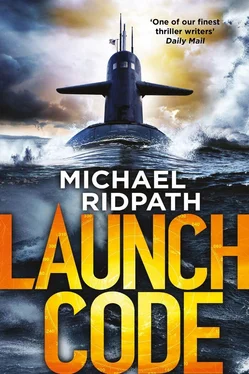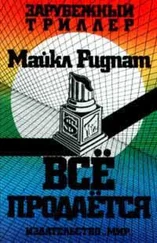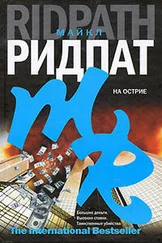‘OK. I understand. Can you tell me a little about the patrol that isn’t top secret?’
‘That’s not very much,’ said Bill. ‘The Hamilton was operating out of Holy Loch in Scotland at the time. We were flown in and out back to Groton in Connecticut when we were off-crew. I guess it was my first tour on submarines. My fifth patrol.’
‘And your last?’
Bill nodded. ‘Yes. My last.’
‘And why was that? You were due to go out on another patrol before your tour ended.’
‘I’m impressed by your research. The official reason was that I requested to leave so I could go to graduate school.’
‘And the real reason?’
‘As I told you, I can only discuss the official reason,’ Bill replied calmly. He seemed unperturbed rather than confrontational.
‘OK,’ said Sam carefully. He made a note. ‘Let me tell you what I think happened on board the USS Alexander Hamilton on 9 November 1983.’
‘Go ahead.’
‘You were on patrol somewhere in the North Atlantic. For the previous couple of days you had received a series of messages from the National Military Command Center in Washington raising your readiness for nuclear war to DEFCON 2. Then you received an order to launch three missiles targeted at Moscow, St Petersburg and East Berlin.’
‘Leningrad,’ corrected Bill.
‘Are you confirming that Leningrad was one of the targets?’ said Sam, a hint of excitement in his voice.
‘No. I’m merely saying that St Petersburg was known as Leningrad in 1983,’ said Bill with a small smile.
Sam Bowen hesitated, examining Bill closely to see what the smile meant. Was it confirmation of Sam’s suggestion? Or was Bill winding the historian up? Toby wasn’t sure.
‘I’m sorry,’ said Bill. ‘I don’t mean to tease you.’ The smile went.
It was confirmation.
There was silence as Sam processed this. Toby could sense that Megan was following this as closely as he was. He wondered how much she already knew about it, how much Alice knew. His wife’s smile at Bill asking Toby to join him made sense now.
This was the family secret.
‘Commander Driscoll was the commanding officer of the Alexander Hamilton ,’ Sam continued. ‘He and the executive officer acknowledged the order as valid. And then a junior officer intervened.’
‘Go on,’ said Bill.
‘The junior officer questioned the order. He pointed out that the target package didn’t make sense and, furthermore, that it was identical to the package included in a drill a couple of weeks before. The drill had been designed to test the readiness of the crew to retarget unexpected coordinates.’
Sam hesitated, waiting for a response from Bill. He didn’t receive one.
‘There was a discussion in the control room, but the junior officer persuaded the captain and the executive officer to change their minds and not launch the missiles.’
Bill raised his eyebrows.
‘That junior officer was you.’
Toby realized he had gasped. Sam glanced at him and then returned his gaze to Bill, who was motionless.
‘What can I say?’ said Bill. ‘I’ve told you I can’t respond.’
‘All right,’ said Sam. ‘If I am correct, perhaps you could just scratch your right ear lobe. Off the record. I can assure you scratching can be off the record.’
Bill laughed at that, but stayed motionless.
Sam frowned. He couldn’t be sure whether Bill was indicating that his version of events was incorrect, or that he just wasn’t playing along. Toby felt sorry for the historian, but admired the way he kept his cool. This probably wasn’t the first stone wall he had bumped into.
Sam put down his pen. ‘Bill. We all know why this had to be top secret during the Cold War. It would have given the Soviets information about the US Navy’s launch procedures, and it would have highlighted shortcomings in those procedures. But the Soviet Union doesn’t exist anymore.’
‘We still have nuclear submarines,’ Bill said. ‘And they still go out on strategic patrol. They could still be ordered to launch nuclear missiles.’
‘Precisely,’ said Sam. ‘What my book will show is that there have been many times when governments’ controls on the launch of nuclear missiles have failed. When the world nearly came to an end. And that we are still relying on many of those same controls. You, of all people, should be able to see how important it is to demonstrate that?’
Bill was very serious now. All trace of a smile gone.
Sam continued. ‘You know that the reason the details of this patrol are still secret is to keep what really happened from the public, right, not the enemy? To stop the American people from knowing how close they or their parents came to being blown to kingdom come. It’s a cover-up. They are making you cover up a mistake that was so serious in its consequences it almost finished the world.’
Sam stared at Bill intently through his glasses. ‘And it wasn’t your mistake. In fact, you are the one who fixed it.’
Bill winced and ran his fingers through his thick hair. ‘It seems completely understandable to me that details of nuclear launch procedure are still top secret thirty-five years later,’ he replied. ‘You may be right that the powers-that-be want to cover up something that may or may not have happened then. But I am still bound by my obligation to respect that secrecy. Apart from anything else, the law is very clear. But it’s also my duty to my country as a former naval officer. As I said, I checked yesterday, and what happened on that patrol is still Classified.’
Sam was getting close. He had a mild manner and a gentle voice, but one that suggested sincerity, and a certain power.
‘Admiral Robinson?’ he asked.
Bill nodded. ‘The XO at the time. He stayed in the Navy and he’s done very well. We’ve kept in touch.’
‘I bet you have,’ said Sam, a sharp note tingeing his words for the first time.
Bill noticed it, and Sam looked down at his notes, seeming to regret his lapse.
‘Have you spoken with the admiral?’ Bill asked.
‘Yes. And a few others on the submarine. I couldn’t speak to Commander Driscoll, of course.’
‘No. But Lars da Silva said he had spoken with you.’
‘That’s right,’ said Sam.
‘And none of them have told you anything?’
‘No one on the Alexander Hamilton ,’ said Sam. ‘But you can imagine the incident made waves in the Pentagon. Top-secret waves, but waves nonetheless. I have two sources so far in Washington who were tasked with figuring out how to change things afterwards.’
‘I see,’ said Bill.
There was silence.
‘Can I ask something?’ Toby said.
Bill nodded.
‘Did these “sources” tell you what the problem was?’ Toby asked Sam. ‘Presumably this message was indeed a false one?’
‘It was,’ said Sam. ‘There had been a software upgrade, and the Emergency Action Messages were supposed to be operating on a ring-fenced part of the system to test it. But they were upgrading at the same time as NATO was running a command-and-control exercise to practice giving orders to launch nuclear strikes.’
‘Able Archer 83,’ said Bill.
‘That’s right,’ said Sam. ‘Of course those messages had to be ring-fenced from the operational system too. It was all too much for the new software, and no one noticed the glitch for forty-eight hours.’
‘How could they let that happen?’ said Toby.
‘That is a very good question. You could almost use it as the subtitle of my book. It was a cock-up, of course. And the company involved was big and reputable. But something very similar had happened four years earlier when they were upgrading the NORAD nuclear warning system. Someone ran a training cassette on the live operational network that simulated two thousand two hundred Soviet missiles heading towards the United States. For six minutes the Pentagon thought nuclear war had started. They woke up Zbigniew Brzezinski, the National Security Adviser. Fortunately, just as Brzezinski was about to call President Carter and suggest full-scale retaliation, the Pentagon called back having checked with their radar units directly. None of them had actually picked up any incoming missiles.’
Читать дальше












